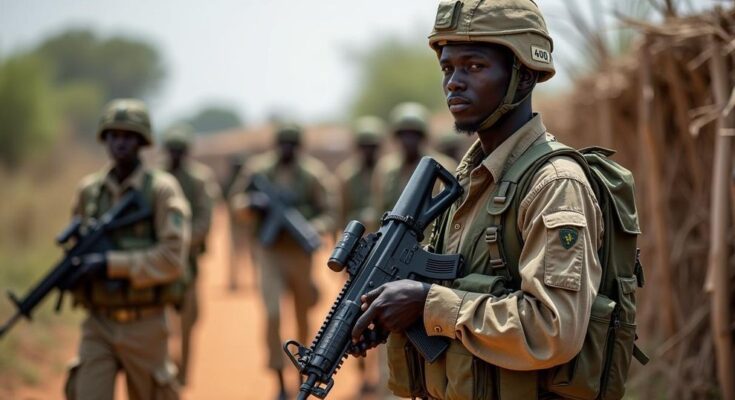This week, armed conflicts in South Sudan resulted in the deaths of 24 individuals, predominantly civilians. The United Nations and local authorities reported that clashes between rebel factions and government forces are the root of this ongoing violence, reflecting the severe instability facing the nation since its independence and the subsequent civil war. Amidst urgent calls for investigations, the situation highlights the persistent crisis within the country.
The recent escalation of violence in South Sudan has led to the deaths of at least 24 individuals, predominantly civilians, as reported by the United Nations and local officials. These incidents stemmed from clashes between rebel factions and government forces in the southern Central Equatoria state, highlighting the ongoing instability in the nation, which has been marred by conflict since its independence in 2011. The attacks, attributed to a faction of the National Salvation Front (NAS), prompted urgent calls from the United Nations Mission in South Sudan (UNMISS) for a thorough investigation and accountability for the perpetrators involved in these brutal acts. UNMISS head Nicholas Haysom expressed profound concern regarding these violent occurrences, which had resulted in the tragic loss of 19 civilian lives and left local authorities alarmed over the persistent threat posed by armed groups. Despite a peace agreement reached in 2018, which aimed to unite the country under President Salva Kiir and Vice President Riek Machar, the country continues to struggle with political turmoil, ethnic conflict, and economic difficulties exacerbated by recent infrastructure failures.
South Sudan, which gained independence from Sudan in 2011, has faced a series of crises that have undermined its stability and progress. Following the outbreak of a civil war in 2013, which resulted in approximately 400,000 deaths and the displacement of millions, various attempts at peace have floundered. The 2018 peace agreement brought together warring factions but has not been entirely successful in curtailing violence or leading to the establishment of a functioning government. The ongoing strife is fueled by a complex interplay of ethnic tensions, political rivalries, and economic hardship, further worsened by environmental challenges and corruption. The nation, rich in oil resources, remains one of the poorest globally, and its economy has been under severe strain due to infrastructural issues, particularly in neighboring Sudan.
The violence in South Sudan represents a continuing cycle of conflict and tragedy that predominantly affects civilians. The recent attacks underscore the pressing need for comprehensive peace efforts and accountability for acts of violence. Despite previous agreements aimed at stabilization, the nation remains fraught with challenges that threaten to plunge it deeper into chaos.
Original Source: www.barrons.com




